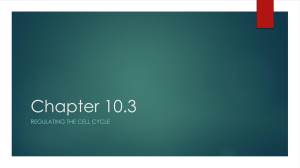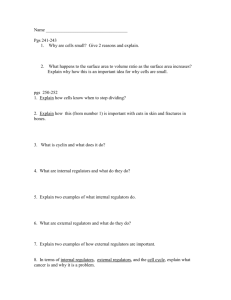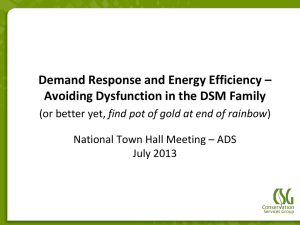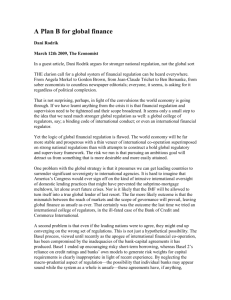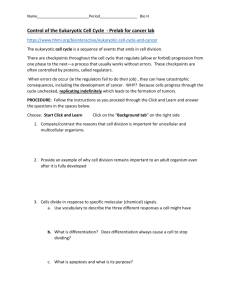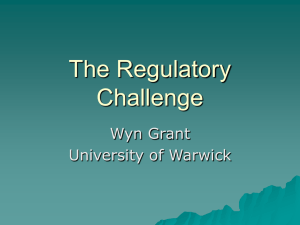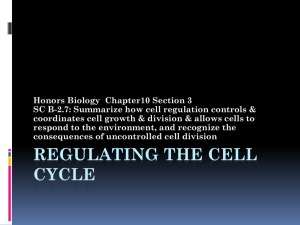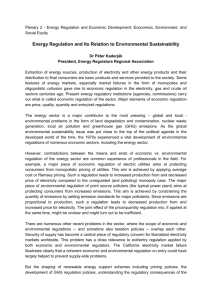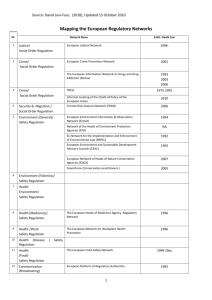The Implications of the Francis Report for Professionalism and
advertisement
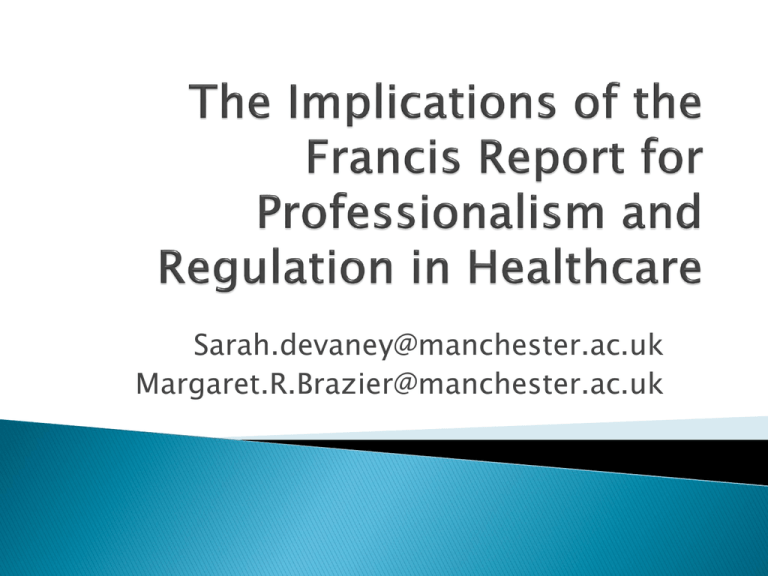
Sarah.devaney@manchester.ac.uk Margaret.R.Brazier@manchester.ac.uk ManReg: the Manchester Centre for Regulation and Governance ◦ Regulating Reputations Centre for Social Ethics and Policy ◦ Role of the Criminal Law in Healthcare Effective regulation: regulators responsive to the culture and needs of their regulatees ◦ which regulators use reputation and how (and which regulators could resort to it but do not) ◦ which regulatees respond to it and why ◦ in what circumstances it is effective and why. Credible, effective, legitimate regulators ‘sustained and focused attempt to alter the behaviour of others according to defined standards or purposes with the intention of producing a broadly identified outcome or outcomes’. Julia Black (2002) ‘obligations imposed by public law designed to induce individuals and firms to outcomes which they would not voluntarily reach.’ Anthony Ogus (2009) Command and Control Right touch etc Traffic lights Healthcare – nudging Regulation that will influence the behaviour of healthcare providers to care for patients in as safe and effective a way as possible in compliance with Good Medical Practice. ‘an unhealthy and dangerous culture pervaded not only the Trust … but the system of oversight and regulation as a whole and at every level.’ Trust Board: ‘tolerance of poor standards and a disengagement from managerial and leadership responsibilities’ Regulation: achievement of national targets, financial balance and foundation trust status prioritised the above patient care - agencies, regulators and professional bodies failed to step in Distress, stress and worry Compliance is ‘the right thing to do’ Pride in being part of the solicitors’ profession, and the role of regulation in upholding the standards of the profession Fear of reputational damage and a denting of ‘professional pride’ of greater significance than risk of sanction (SRA 2011) Little evidence of the behavioural effects of regulatory activity and interventions on those regulated Complex: ◦ ◦ ◦ ◦ ◦ ◦ Goals and incentives of doctors Habits and self-belief Reconciling personal judgement with guidelines Team working and human factors Morale, workload and resources Organisational culture (Scraggs et al 2012) Why is reputation not important? ◦ Markets (but commissioning) Can it become more important? Complexity inhibiting professionalism? Major outputs D Griffiths and A Sanders Medicine Crime and Society (CUP, 2012) M Brazier and S Ost Bioethics and Medicine in the Theatre of the Criminal Process (CUP, 2013) A Alghrani, R Bennett and S Ost The Criminal Law and Bioethical Conflict (CUP, 2012)
